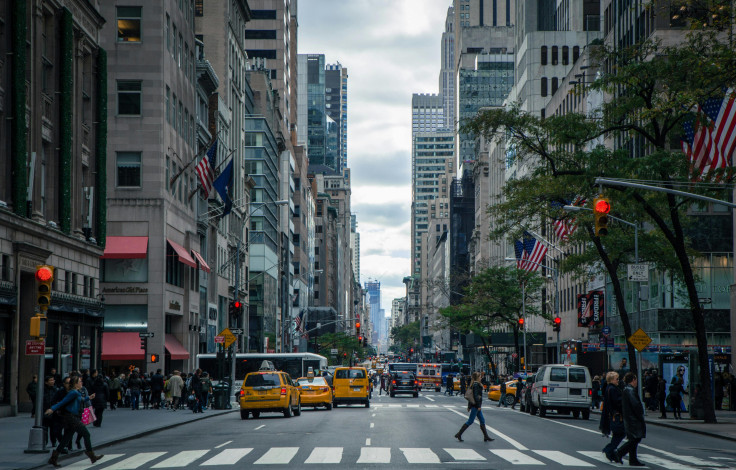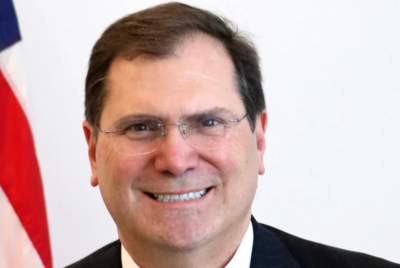Anti-Cop Professor Alex Vitale Set to Join Mamdani's Safety Committee: What It Means For NYC
Controversial 'Anti-Cop' Professor Alex Vitale Set to Redefine NYC Public Safety Programmes

The political tectonic plates of New York City's public safety landscape have shifted significantly following Mayor-elect Zohran Mamdani's newest transition team appointment. Into the high-stakes advisory role on community safety steps Alex Vitale, a Brooklyn College sociology professor whose philosophy is encapsulated in the uncompromising title of his 2017 text: The End of Policing.
Vitale's selection immediately ignited a furious debate across social media and political spheres. For many, his inclusion signals a progressive commitment to radical, structural reform; for scores of critics, however, it spells a perilous erosion of the traditional policing model.
The backlash was instantaneous, with commentators predicting a 'disaster' for New York City. The professor himself, announcing the news on X (formerly Twitter), championed the moment: 'I'm excited to announce that I have been asked to join the Mamdani Transition Team to work on community safety issues. A New Era for NYC,' he posted, underscoring the revolutionary potential of the new administration.
The appointment confirms that Mamdani's administration is prepared to move far beyond standard reform programmes and is seriously considering the decriminalisation and diversion of issues currently managed by the New York Police Department (NYPD).
A Radical Vision for Public Safety
Professor Vitale, the coordinator of the Policing and Social Justice Project at Brooklyn College, has positioned himself as one of the most prominent intellectual voices in the movement to abolish or significantly downsize conventional policing.
His body of work, particularly The End of Policing, serves as a comprehensive indictment of modern law enforcement, arguing that its foundational purpose is not public protection but the management of social, racial, and economic inequality. His appointment to advise on NYC safety is seen as an endorsement of this 'anti-cop' rhetoric by the incoming administration.
The professor has long argued against the widely popular 'broken windows' policing, claiming that the NYPD's proactive policies—which target low-level infractions like graffiti, fare evasion, and public disorder—have disproportionately and unjustifiably targeted minority communities.
Critics suggest that empowering a figure who advocates for dismantling the police force to advise on safety strategy is fundamentally incompatible with maintaining order in a large metropolis. Online, the concern manifested dramatically. 'RIP NYC,' one person posted on X. Another user chimed in, 'This is a guaranteed disaster,' while a third added with pointed disbelief, 'Reading your bio, the last thing in the world I'd entrust you with is community safety.'
This outrage reflects the profound ideological gulf between those who view police as the sole essential guarantor of public safety and those who believe law enforcement inherently exacerbates social problems.
From Theory to Policy
Vitale's book provides the philosophical blueprint for Mamdani's proposed Department of Community Safety, which aims to utilise new, expanded civilian and community-led responses for issues like mental health crises, homelessness, and subway safety. The core of Vitale's argument is that decades of reform efforts—including better training, increased diversity, and community policing programmes—have failed because they do not address the fundamental, structural role of policing itself.
The book states its premise unequivocally, a viewpoint that directly challenges the conventional wisdom surrounding law enforcement improvement: 'The problem is not police training, police diversity, or police methods.'
'The problem is the dramatic and unprecedented expansion and intensity of policing in the last 40 years, a fundamental shift in the role of police in society.' Ultimately, Vitale concludes that 'The problem is policing itself.'
In Vitale's view, many issues currently dealt with by armed officers—such as drug use, homelessness, and mental illness—are complex social problems that police are neither equipped nor mandated to solve. Attempting to manage them punitively only serves to criminalise poverty and addiction, particularly in Black and Latino neighbourhoods.
For instance, he proposes that the city replace police responses to homelessness with 'Housing First' policies and civilian outreach teams, arguing that providing shelter and mental health services is not only more humane but ultimately less expensive than cycling vulnerable people through emergency rooms, prisons, and shelters.
Similarly, he argues for replacing the 'warrior mentality' of police with trained non-law enforcement professionals in schools and for responding to mental health crises with specialised civilian B-Heard teams, a programme that dispatches mental health experts instead of police to certain 911 calls.
The stakes for New York City are immense. Vitale's appointment signals that Mamdani is serious about shifting resources away from coercive enforcement and towards preventative social services. It is a bold move that promises a 'New Era' of public safety focused on systemic change, but one that simultaneously risks alienating law-and-order proponents who fear that fewer police will inevitably lead to rising crime rates in the city's bustling centre.
The outcome of this controversial shift, spearheaded by the academic who wrote The End of Policing, will define the future of NYC safety.
© Copyright IBTimes 2025. All rights reserved.





















